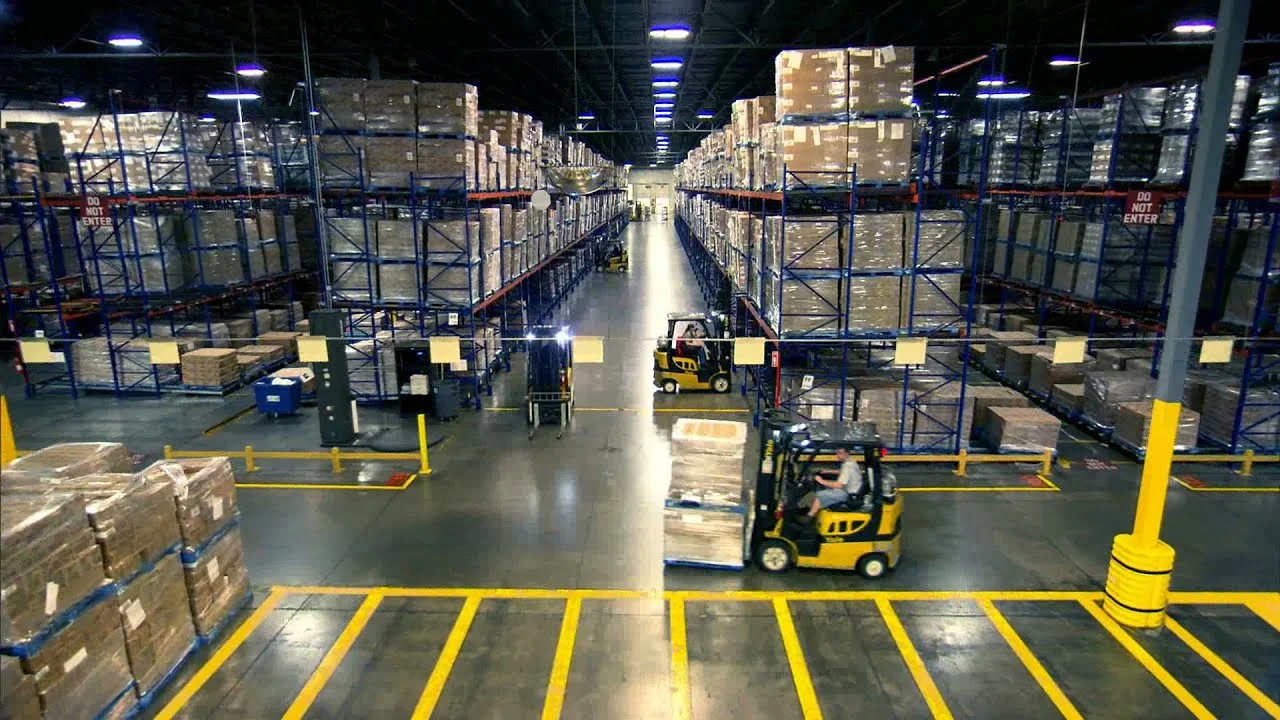In today’s fast-paced and highly interconnected world, businesses face intense competition on a global scale. No longer confined to local markets, companies are now competing with organizations across the world. This competitive landscape is pushing businesses to find ways to stay ahead. One of the most important strategies for staying relevant and successful in this environment is efficiency. Efficiency is no longer just a buzzword—it’s a key factor that can make or break a business in the global market.
In this article, we will explore why efficiency is so critical to success and how businesses can leverage it to gain a competitive edge in today’s globalized marketplace.
The Rise of the Global Market
1. Expansion of International Trade
Globalization has significantly increased the reach of businesses. Companies today have access to international markets, allowing them to sell their products or services to a much larger audience. This expansion has created countless opportunities, but it has also increased competition. Firms are no longer just competing with their next-door neighbors; they’re competing with companies on the other side of the globe.
To thrive in this globalized market, businesses must streamline their operations and eliminate inefficiencies. Those that can deliver products and services faster, cheaper, and better are the ones that gain market share and attract customers.
2. Increased Consumer Expectations
Globalization has not only expanded markets but also raised the bar for consumer expectations. With the rise of digital platforms, customers now expect instant access to products, seamless service, and fast delivery. They also have more choices than ever, which means that they can easily switch to a competitor if their needs aren’t met.
Efficiency in operations allows businesses to meet these heightened expectations by reducing lead times, improving product quality, and ensuring on-time delivery. Companies that can consistently meet or exceed customer expectations will find it easier to retain customers and attract new ones.
3. Intense Price Competition
Price is one of the most significant factors in the global market, especially with low-cost competitors entering the fray. Companies must find ways to offer competitive prices without compromising on quality. Efficiency helps businesses reduce production costs, optimize supply chains, and minimize waste, all of which lead to more competitive pricing.
Businesses that can operate efficiently are in a better position to adjust pricing strategies in response to market changes, without eroding their profit margins. In industries where price is a major deciding factor, such as retail or manufacturing, efficiency can be the difference between profitability and losing ground to competitors.
The Benefits of Efficiency in the Global Market
1. Reduced Operating Costs
One of the most significant benefits of improved efficiency is the reduction of operating costs. When businesses streamline their operations, they eliminate waste, reduce redundancies, and minimize resource consumption. Whether it’s cutting down on energy use, optimizing inventory levels, or automating manual processes, efficiency drives down costs.
Lower operating costs enable companies to invest in innovation, offer competitive pricing, or simply increase their profit margins. In industries where cost leadership is crucial, such as manufacturing or logistics, efficiency becomes a major competitive advantage.
2. Faster Time to Market
In the global market, speed matters. Products and services must reach customers quickly, especially in fast-moving industries like technology, fashion, or consumer goods. Efficient processes help companies reduce the time it takes to develop, produce, and deliver their products to market.
For example, an efficient supply chain can ensure that raw materials arrive on time, production schedules are met, and finished goods are delivered without delay. Companies that can bring products to market faster than their competitors can capitalize on trends, meet consumer demands, and respond to changing market conditions more effectively.
3. Enhanced Productivity
Efficiency also leads to enhanced productivity. By optimizing processes and eliminating bottlenecks, businesses can get more done in less time. This means that employees can focus on higher-value tasks, rather than wasting time on repetitive or unnecessary activities.
Improved productivity not only helps companies meet customer demands more effectively but also boosts employee morale. When employees can see the tangible results of their work and are not bogged down by inefficiencies, they are more motivated and engaged. In the long term, this leads to a more agile, innovative, and competitive organization.
4. Better Use of Resources
Efficiency helps businesses make better use of their available resources, whether it’s labor, materials, or capital. For example, an efficient production process ensures that raw materials are used optimally, reducing waste and minimizing the need for rework. Efficient financial management allows companies to invest in growth opportunities without overstretching their budgets.
In a global market where resources can be scarce or expensive, maximizing resource utilization is crucial for staying competitive. Companies that use their resources wisely can offer better products at lower prices, while maintaining profitability.
Efficiency and Supply Chain Management
1. Optimizing Global Supply Chains
For many businesses, supply chains are a critical part of their operations. In the global market, supply chains have become increasingly complex, spanning multiple countries, regions, and transportation modes. Managing these intricate networks efficiently is essential for delivering products on time and at a competitive cost.
Efficiency in supply chain management involves optimizing logistics, reducing transportation costs, and minimizing lead times. Real-time tracking, data analytics, and automation are just a few tools that help companies streamline their supply chains, ensuring that products move smoothly from suppliers to customers.
Companies with efficient supply chains can respond quickly to market changes, avoid stockouts or overstocking, and keep costs under control. This flexibility is especially important in global markets, where disruptions such as trade tariffs, political instability, or natural disasters can affect supply chain performance.
2. The Role of Technology in Driving Supply Chain Efficiency
Technology plays a pivotal role in improving efficiency across supply chains. Advanced technologies such as the Internet of Things (IoT), blockchain, artificial intelligence (AI), and big data analytics are transforming the way businesses manage their logistics and supply chain operations.
For example, IoT sensors provide real-time visibility into the movement of goods, allowing companies to track shipments, monitor conditions (such as temperature or humidity), and predict potential delays. AI and machine learning algorithms help optimize routing, inventory management, and demand forecasting, ensuring that businesses can meet customer needs without overcommitting resources.
By leveraging technology to enhance efficiency, companies can gain a competitive edge in the global market, where speed, transparency, and adaptability are increasingly important.
Efficiency as a Driver of Innovation
1. Efficiency Fosters Innovation
Efficiency doesn’t just improve day-to-day operations; it also fosters innovation. When companies streamline their processes and reduce waste, they free up time and resources to invest in new ideas, technologies, and business models. Innovation is critical to staying competitive in the global market, where customer preferences and market conditions are constantly evolving.
Efficient organizations are better positioned to experiment with new approaches, whether it’s developing new products, exploring new markets, or adopting cutting-edge technologies. For example, companies that have optimized their production processes may have the flexibility to invest in sustainable practices, reducing their environmental impact while meeting consumer demand for eco-friendly products.
2. Sustainability and Efficiency Go Hand-in-Hand
Sustainability is becoming an increasingly important factor in global competition. Consumers, investors, and regulators are placing greater emphasis on environmental and social responsibility, and businesses that fail to prioritize sustainability may lose market share.
Efficiency and sustainability often go hand-in-hand. By reducing waste, optimizing resource use, and minimizing energy consumption, businesses can not only lower their costs but also reduce their environmental footprint. Sustainable practices also appeal to consumers who are increasingly choosing brands that align with their values.
Companies that prioritize both efficiency and sustainability are more likely to thrive in the global market, where environmental and ethical concerns are becoming key drivers of consumer behavior.
Adapting to a Changing Global Market
1. Flexibility and Agility
In a global market, businesses must be prepared to adapt quickly to changing conditions. Whether it’s responding to new regulations, shifts in consumer preferences, or economic disruptions, companies that can pivot quickly are more likely to succeed.
Efficiency enhances flexibility by allowing businesses to reallocate resources, adjust production schedules, or enter new markets without significant delays or additional costs. An efficient organization can adapt its strategy to meet new challenges and seize opportunities as they arise, giving it a significant advantage in a fast-moving global marketplace.
2. The Competitive Advantage of Efficiency
Ultimately, efficiency provides a competitive advantage that can help businesses thrive in the global market. Companies that operate efficiently can deliver higher-quality products at lower costs, respond to customer demands faster, and innovate more effectively than their competitors.
In industries where margins are thin, and competition is fierce, efficiency becomes a key differentiator. Businesses that prioritize efficiency not only stay competitive but also position themselves for long-term success in an increasingly complex and dynamic global market.
Conclusion: Efficiency as a Strategic Imperative
In today’s global market, efficiency is no longer optional—it’s a strategic imperative. Businesses that streamline their operations, optimize their resources, and leverage technology to enhance efficiency can reduce costs, improve customer satisfaction, and stay ahead of their competitors.
Whether it’s through supply chain optimization, better use of data, or fostering innovation, efficiency plays a critical role in helping businesses navigate the challenges and opportunities of the global marketplace. As competition continues to intensify, those that make efficiency a priority will be well-positioned to lead and succeed in the years to come.






